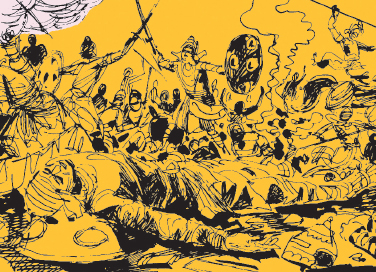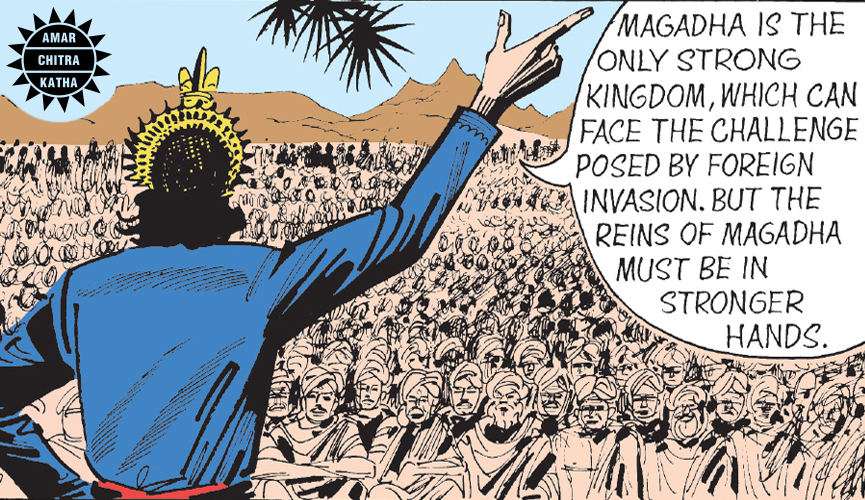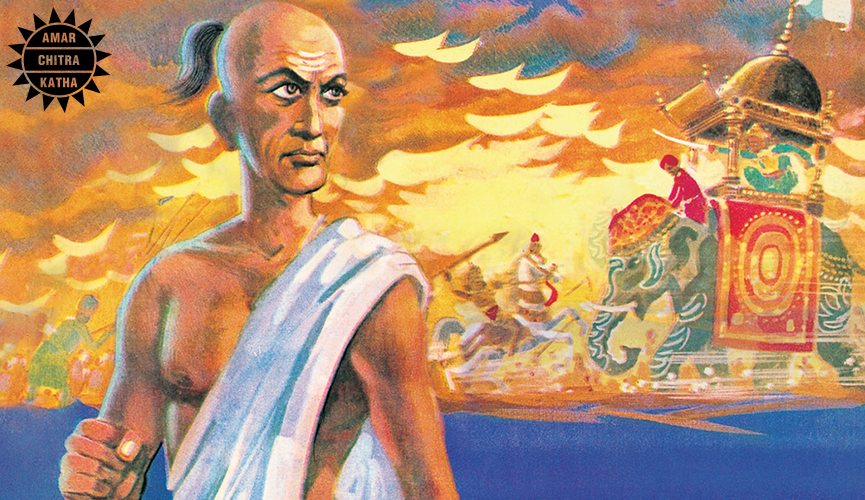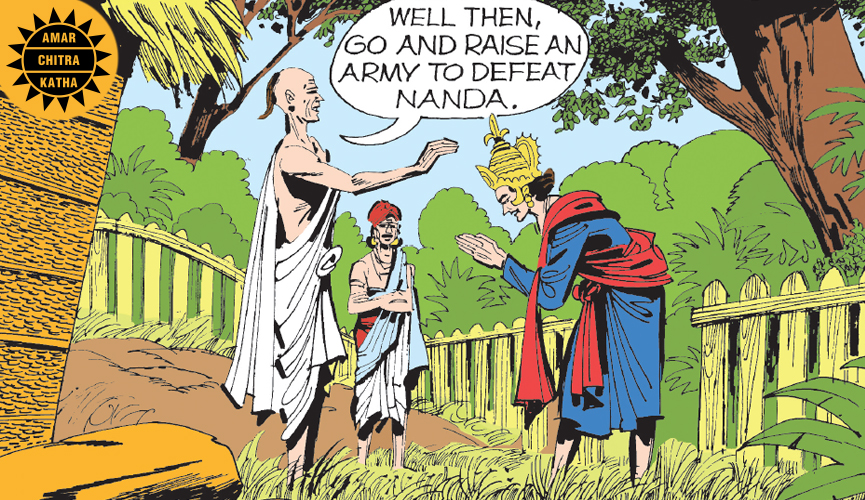The Downfall Of The Nandas
- October 10, 2020


The Downfall Of The Nandas
- October 10, 2020
By Samyukhtha Sunil
Not too far from the Indo-Gangetic plains somewhere in modern-day Bihar, there lies a forgotten region that witnessed the rise and fall of some of India’s most powerful kingdoms in history. Magadha was not only the heartland of some of the most successful kingdoms in India at the time, but also one of the most prosperous cities in the subcontinent.
One of the strongest empires to have ever ruled over this region was the Nanda Dynasty whose capital was in Pataliputra, where modern-day Patna stands today. Founded by Mahapadma Nanda, this lineage of rulers saw a rapid rise and an equally rapid decline in fortunes. Most of ancient India’s political activity was concentrated in this region and Magadha became the nucleus for several other Indian kingdoms that sprouted in neighbouring regions.
To receive more such stories in your Inbox & WhatsApp, Please share your Email and Mobile number.
By the time the last ruler of the Nandas, Dhana Nanda, came to power, the kingdom had grown exponentially in its geographical expanse, wealth, and military conquests. Magadha’s army was believed to have over 20,000 cavalry, 200,000 infantry, 2,000 chariots, and 3,000 elephants. This army was so powerful that when Alexander the Great invaded India, his own army feared the might and control of the Nandas to an extent they were forced to cut short their conquest and return to Persia. The Nanda dynasty had successfully established itself as one of the strongest Indian kingdoms of its time.

However, the overall prosperity of the kingdom and the power that came with it was intoxicating enough to turn some of the Nanda rulers, especially Dhana Nanda, against his subjects. Despite being a powerful king, Dhana Nanda was viewed as a cruel king who imposed severe taxes on his population, most of whom could not afford to bear the brunt of this rule. His unpopular method of administration and his poor management of the kingdom’s finances set the fall of the Nandas in motion. Of course, he wasn’t the only figure to have impacted the decline of the Nandas. Here are some other personalities who also played a part in the proceedings.
According to the book ‘Jainism: The World of Conquerors’ by Natubhai Shah, Dhana Nanda had four able ministers – Bandu, Subandu, Kubera and Sakatala. Sakatala became the chief minister of the last Nanda. He was a popular, well-respected and faithful chief minister. However, one day, the king thought that Sakatala was manufacturing weapons so that he could take over the kingdom. Little did the king know that those weapons were actually a gift for him for the royal wedding. Sakatala quickly tried to defuse the situation by asking his son, Sriyaka, to chop off his head in front of the king. However, to save his son from committing such a horrendous sin, he had already taken a poisonous pill.
However, a more popular version of the story tells us that Sakatala had emptied Dhana Nanda’s coffers in a bid to broker peace with foreign invaders. However, he had not done this with the king’s approval. Infuriated by this act, Dhana Nanda punished Sakatala by throwing him into a dungeon with minimum food and water. Years later, when Dhana Nanda sought Sakatala’s advice on foreign invasions, Sakatala cut off all ties, pledging his allegiance to Chanakya, who played a pivotal role in dethroning the Nandas. Just like Sakatala, the wise Chanakya had been a victim of Dhana Nanda’s rude behaviour.

After being insulted for his appearance by the Nanda ruler, Chanakya swore to take revenge and topple the Nanda dynasty altogether. He began to study the flaws and shortcomings of the Nandas in terms of administration and military prowess, realising their vulnerability when it came to foreign invasions. Using his knowledge and expertise to his advantage, Chanakya found a strong ally in the young Chandragupta Maurya and decided to mentor him and conquer Magadha.
Faced with the looming threat of a possible foreign invasion, the people of Magadha looked to their king to plan ahead. However, thanks to his selfishness and arrogance, Dhana Nanda belittled those who advised him of these possible threats, choosing to live in denial instead. The stage was set for a young prince who was well trained and equipped in warfare and administration. Chandragupta Maurya trained with his guru Chanakya in Taxila, working out a plan to lay siege to the kingdom of Magadha. Chanakya eventually zeroed in on the right time for the Mauryan army to attack, and Chandragupta set out accordingly to conquer Magadha and its states.

Thrown off guard by the Mauryan attack on his kingdom, Dhana Nanda prepared his army for a war he had not anticipated. The Mauryan forces besieged the city of Pataliputra using guerrilla tactics. In spite of being outnumbered, Chandragupta Maurya was able to lead his small army to victory against the enormous army of the Nandas, using his wits and military expertise.
After the death of Dhana Nanda, Chandragupta Maurya continued to rule from Pataliputra which became the capital of the Mauryas. He eventually expanded the kingdom to the south along the Deccan plateau and went to establish the most extensive empire India has ever seen in the course of its history.
Read our titles ‘Chandragupta Maurya’ and ‘Chanakya’ on the ACK Comics app and Kindle. It is also available on Amazon, Flipkart, and other major e-tailers.
To receive more such stories in your Inbox & WhatsApp, Please share your Email and Mobile number.

Comic of The Month
The Naval Journey of India Book I
This book is the first of a three-book series that takes a deep and detailed look at India's Naval History and a deep insight into the lives of our men and women in white. But any series on the Indian Navy has to start at the very beginning - exploring India's celebrated maritime history. Join our little hero, Bharat, and his grandfather, Commodore Sagar, as they sail into the deep blue waters of time. Book I of The Naval Journey of India takes a sweeping look at India's maritime endeavours, how the seas impacted us over millennia and how the oceans made us who we are.